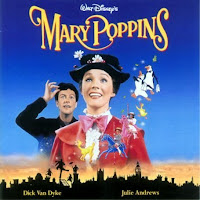A wonderful colleague of mine, Julia Cross (who's blog can be viewed by clicking here), posted this article on - ironically enough - her Facebook page. At first glance I thought is was just a silly quiz, but upon further investigation I realized that it was an article entitled: "Use Facebook or risk becoming irrelevant, teachers told at Vancouver Conference." The article appeared in today's Vancouver Sun. [Click here to view article in full] The article really speaks for itself and I would highly recommend giving it a read - as well, read the comments that people posted to the article.
At this years BC College of Teachers conference, Steve Dotto, a technology guru, gave a key note speech about technology and the classroom. He testified that "social media is changing our world profoundly" and that "understanding this world is our responsibility and we have to provide some form of leadership." The article did not disclose how we, as teachers, provide this leadership, but it did report that "all of our reasons for not being online are not good reasons."
While the article was interesting to read, the comments were more entertaining. The article and comments combined seemed to sum up a lot of what we've been talking about in our EDCI 336 class. Is there a line between technology and teaching? If so, where is drawn? As new teachers are we being forced to push that line further and further beyond our comfort zones? Are there right and wrong reasons for not being online?
In response to the article, one person wrote:
I did not agree with a lot of what the article was saying, however it does raise a lot of important issues. Can a teacher become irrelevant if they don't have a Facebook page? How? Is technology so advanced and so important to students that we have to adapt? Even if teachers did have Facebook pages, how do they "friend" their students without crossing certain boundaries?
Overall, I felt like the article was blaming teachers for their technological failures because they refused to give into the hype and media of Facebook. I'll be the first to admit that I not only have a Facebook account, but I'm addicted to it. I check my page anywhere between 20 and 100 times a day. However, my security settings are extremely high, and I check them often; I do not befriend people who I do not know, nor do I add people for the sake of adding them; I try my best to censor what I post on Facebook. I use my Facebook account to stay in touch with my friends, colleagues, and family. My Facebook page is for me and for me to interact with the people who are closest to me. I do not intend to befriend my students because I feel that it would crossing a line. My students will be my students, they are not my "friends"; they have enough friends, and as a teacher I have to be the adult and guide them through a very important and confusing time in their lives, I have to be the role model.
How do you feel about it?
Until Next Time
LC





